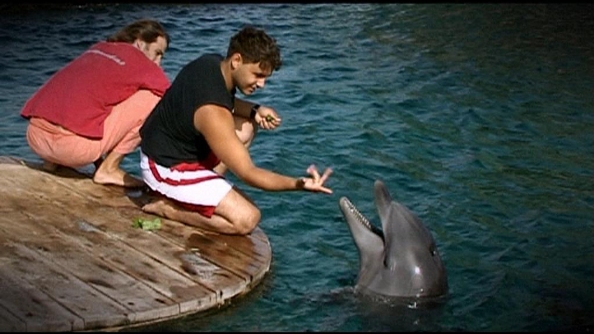
An adventure of the heart, mind and sea, Dolphin Boy dives into the blue mystery of the ocean and its redemptive powers with all the suspense of a thriller. Dani Menkin and Yonatan Nir’s film, tells the story of a young man’s journey. After sending an innocent text message to a girl in his class, Morad, from the Arab village of Qalansua in the north of Israel, was savagely beaten by her relatives in the fall of 2006. Although he recovered from his physical injuries, he was detached from the world, unable to speak. Five years later, at the film’s Israeli premiere on July 14, 2011, Morad stood onstage in front of a full house, a contemporary hero and living testimony to an amazing recovery.
Morad’s family is at the heart of this story, placing their son’s recovery above all else. Their unswerving devotion and willingness to do and try anything that might help Morad, the father Asad leaving job and home to take their son to the Dolphin Reef in Eilat, while the mother and daughter remained in the village, their unconditional love and deep faith are an inspiration to all.
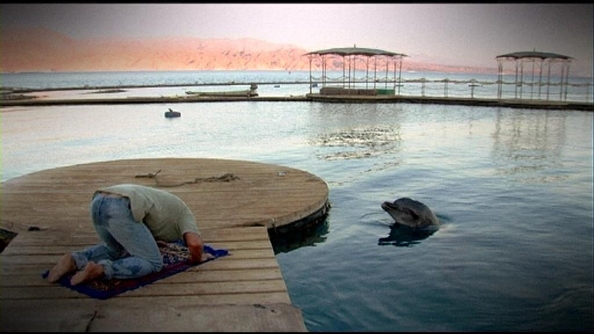
Yet the film does not attempt to mythologize the process or suggest that therapeutic interaction with dolphins is a miracle cure. It is as much a hymn to science, research, dedication, persistence, documentation, and the wonders of an open and tolerant mind as well as the wonders of love and the dolphins. Much of the magic of this film is that we are with Morad all the way, from the first moments of seeing a silent boy whose wide frightened eyes refuse any contact, to a man who faces the camera with warmth and confidence, talking about his experiences with honesty, intelligence and sensitivity. Composed entirely of real-time footage and interviews, the access granted to the filmmakers for this project is exceptional, and the story of making the documentary reflects the spirit of the film itself.
Co-producer and director Yonatan Nir, a photographer and diving instructor, was working as an underwater cameraman at the Dolphin Reef in Eilat. Returning to the reef after an injury in the second Lebanon war, Nir felt the healing effect of spending time with the dolphins. Morad arrived at the reef two months later, at the recommendation of his psychiatrist, Dr. Ilan Kutz. Unresponsive to traditional therapeutic methods, with hospitalization as the only other alternative, Morad came to Eilat with his father Asad to try dolphin therapy.
Nir recalled in a telephone interview that when they first approached Dr. Kutz with the idea of telling Morad’s story, “Ilan Kutz said that everything had to be done with Morad’s agreement. He warned us that we are entering a story that will take years and that we are taking a risk.” The risk was twofold: the standard risk that any documentary filmmaker takes on, allowing the course of events to create a narrative, never knowing what the conclusion of the story will be; and the additional condition that “Morad will know everything that we are doing, throughout the entire process, and will approve, and that the film will only be screened with Morad’s approval. This meant that there was a chance that we would not be able to screen the finished film.”
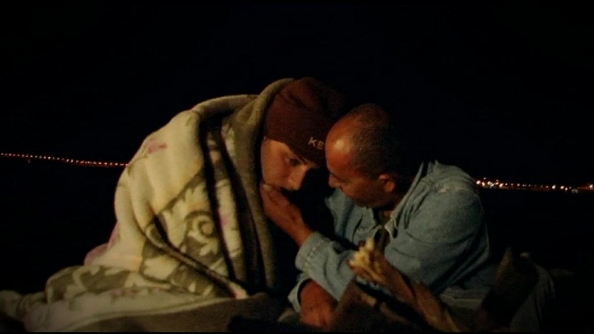
In this way, the process of creating the film became part of the treatment, as Morad became an active partner in agreeing to be filmed, to make his story public, a decision that required both openness and courage at a point when he was making his first tentative steps towards connecting to the world. Dr. Kutz then gave his full cooperation to the project, giving the filmmakers 7 HDV and mini DV tapes he had made throughout his treatment of Morad, as Nir said, “What Dani called documentary gold.” The Dolphin Reef gave them access to their archives, and as Morad’s stay at the reef was documented from the first day, it’s all there for everyone to see.
On the first day at the reef Morad can be seen sitting on the dock with Omer, his guide on the journey with the dolphins. The dolphins at the reef live as they do in nature, in a school; the contact with humans is their choice. When a dolphin swims up to the dock, Omer tells Morad, “She’s here for you.” Yet Morad turns away, and refuses to look at the dolphin. The next day, sitting on the dock once more with Omer, Morad reaches a hand into the water and touches the dolphin’s head. It is a moment of startling beauty and amazement. It is about as close as I have come to witnessing a miracle.
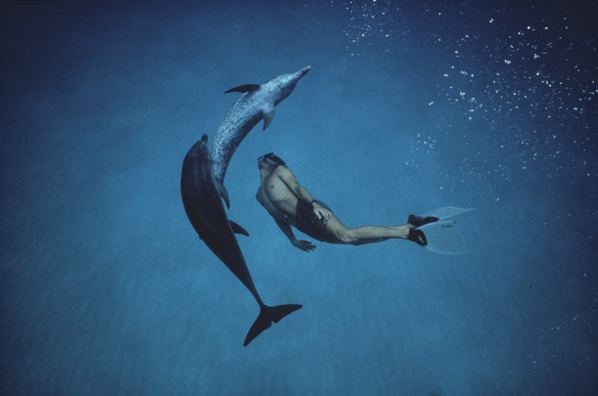
Menkin and Nir take the viewer into Morad’s underwater world, open, wide, flowing, blue as a vision of heaven. Yet the beauty of these scenes is enhanced by an understanding of nature as a system of interdependence that pervades the film. This is not a story of recovery as a single dramatic event, ascribed to one source; it is a story of the journey of an individual with an inner core of strength, resilience and love, among a community of supportive individuals: family, therapists, dolphins, friends, and even documentary filmmakers, each contributing in a different way. An ocean of love that prevails over an act of violence, Dolphin Boy celebrates the capacity of the human spirit to grow, change and heal, through a deep respect for individual differences, beliefs, love and life.
Dolphin Boy will be screened in Israel from August 1 – 15, 2011 daily at the Tel Aviv Cinematheque and on alternating days at the Jerusalem Cinematheque with additional screenings around the country. For additional information, consult the Dolphin Boy website.
Dolphin Boy (Israel 2011, 70 min, Hebrew & Arabic, English & Hebrew subtitles)
Directors: Dani Menkin, Yonatan Nir
Producers: Dani Menkin, Yonatan Nir, Judith Menassen Ramon.

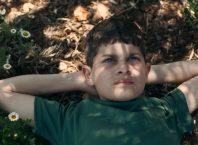
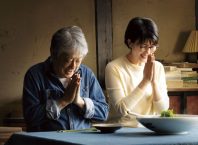
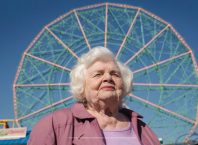
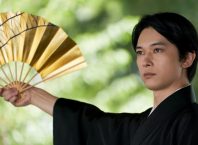
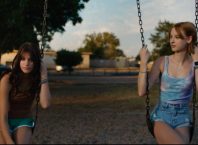
I haven’t seen the movie jet but I’ve been reading it online and it has touch my heart so deep that I can wait to see it, I have a son who has a disabilitie and he has been threw so many hospitalizations and therapist that I don’t know at this point what to do anymore perhaps this will change my way of thinking about medication.
I also watched the Channel 4 broadcast and thought it might be a bit despondent. Instead I found it to be fabulously uplifting. It was a story of Love; the boy and the dolphins, the staff helping at the trauma unit, his family but mostly Morad’s father. Thank you to all who participated in the making of this film.
Hi guys i have just seen this film on channel 4 hear in uk …and wow it blew me away iam also a survivor of ptsd and really do feel nature has a big place to play in a persons recovery and wellbeing from PTSD,is medication the answear?? or has it been out there for thousands of years..maybey this is an open question who knows..a big thank you for all those who put this together and to the family of Morad who made others think about ptsd in a diffrent way..well done to you all…and Morad for making me think that nature is recovery and Dr Kutz..your a man in your own belife to help those move …
god bless
Dean Smith Fleetwood, lancashire United Kingdom
Comments are closed.